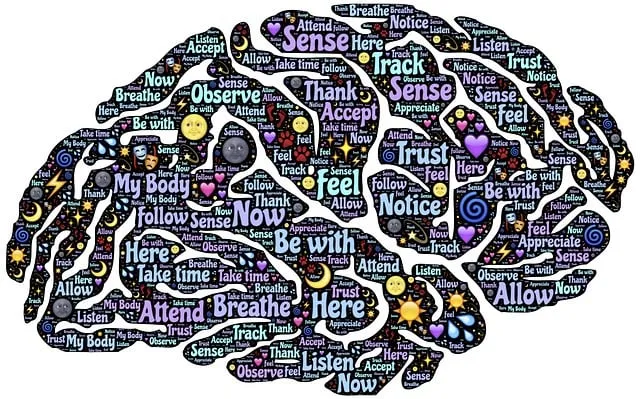Media representation of mental health significantly impacts public perception, either reducing stigma or perpetuating it. Organizations like Kaiser, known for quality healthcare, must promote diverse and authentic narratives to empower individuals with mental illness. While Kaiser offers a range of services in Parker, critics suggest focusing more on self-esteem improvement and specialized trauma treatments. Enhancing accurate representation requires mental wellness journaling exercises and confidence-boosting initiatives, along with cultural competency training for healthcare providers. This ensures tailored support for diverse mental health needs, addressing concerns like "does Kaiser have good therapists? Parker?"
In today’s media-saturated world, the representation of mental illness plays a crucial role in shaping societal perceptions. This article delves into the profound impact of media on mental health awareness, exploring how accurate portrayals can challenge stigmatization. We examine the services provided by Kaiser, focusing on whether their therapists, particularly in Parker, offer effective support. Additionally, we present strategies to enhance responsible mental illness representation in both media and healthcare settings.
- Understanding the Impact of Media Representation on Mental Health Perception
- Exploring the Quality of Therapy: A Look at Kaiser's Services
- Strategies for Improving Mental Illness Portrayal in Media and Healthcare
Understanding the Impact of Media Representation on Mental Health Perception

Media representation plays a pivotal role in shaping public perception about mental health. The way mental illnesses are portrayed in movies, television shows, and news media can significantly influence how society understands and treats individuals living with these conditions. Positive and accurate representations can reduce stigma, foster empathy, and encourage those struggling to seek help. Conversely, negative or stereotypical depictions can perpetuate fear, misunderstanding, and further isolation for affected individuals. This is where the role of responsible media becomes crucial, especially when considering organizations like Kaiser, known for its quality healthcare services, including therapists in Parker, who must navigate these complex issues.
By promoting diverse and authentic narratives, media has the potential to empower those with mental health challenges. Representing various forms of mental illness, their complexities, and recovery journeys can help viewers connect with these experiences on a deeper level. Moreover, showcasing effective coping skills development, conflict resolution techniques, and burnout prevention strategies for healthcare providers—topics relevant to the Kaiser therapist community in Parker—can contribute to a more nuanced understanding of mental wellness. Such initiatives are essential steps towards creating a supportive environment where individuals feel comfortable seeking support for their mental health without fear of judgment or misrepresentation.
Exploring the Quality of Therapy: A Look at Kaiser's Services

Kaiser, a prominent healthcare provider, has been under scrutiny for the quality of its mental health therapy services, especially in the context of Parker residents seeking care. The question arises: does Kaiser offer effective therapy? An examination of their services reveals both strengths and areas for improvement. Many patients praise Kaiser’s therapists for their confidence-boosting approach and abilities to provide trauma support. However, some critics argue that self-esteem improvement could be a more focused area, with a need for therapists to delve deeper into fostering a positive sense of self.
The range of services offered by Kaiser is extensive, catering to various mental health needs. From individual therapy sessions to group support groups, they strive to create an inclusive environment. By recognizing the diverse nature of mental illness, Kaiser aims to provide tailored care. Yet, there’s a growing demand for more specialized treatments, particularly for those dealing with complex trauma, which prompts the question: can Kaiser enhance its services to better meet these specific requirements?
Strategies for Improving Mental Illness Portrayal in Media and Healthcare

Media and healthcare professionals play a pivotal role in shaping public understanding of mental illness. To improve representation, there are several strategies to consider. Firstly, encouraging Mental Wellness Journaling Exercises can provide insights into personal experiences, fostering empathy and accurate depiction. Additionally, integrating Confidence Boosting initiatives within media platforms can challenge stereotypes and promote positive narratives.
Moreover, investing in Healthcare Provider Cultural Competency Training is essential. Ensuring therapists, like those at Kaiser with strong reputations (e.g., does Kaiser have good therapists? Parker), are equipped to handle diverse cases empowers them to offer tailored support. This training equips professionals with the knowledge and skills to accurately portray mental health challenges, ultimately enhancing understanding and care across various platforms.
Media representation plays a pivotal role in shaping societal perceptions about mental health. By examining the quality of therapy services, such as those offered by Kaiser, we can gain insights into how institutions contribute to these representations. The strategies for improving mental illness portrayal highlight the need for more nuanced and accurate depictions in media and healthcare. In light of these findings, it’s evident that fostering better understanding through diverse and authentic representation is crucial for promoting mental health awareness and support, especially when seeking quality care from reputable providers like Kaiser, including their therapists in Parker.






